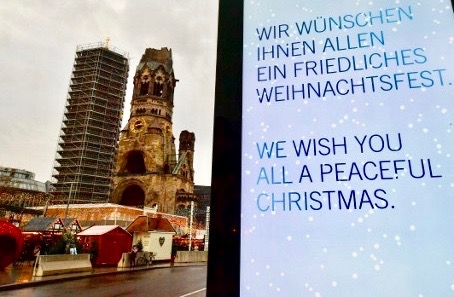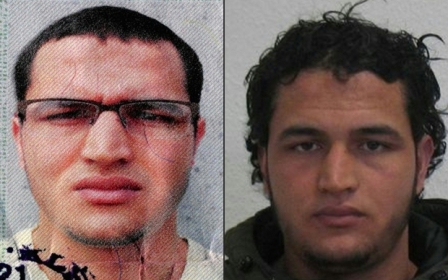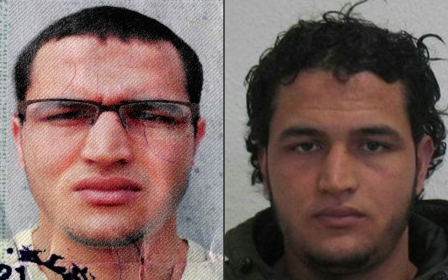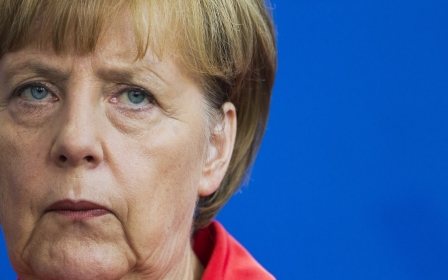Tunisian security forces arrest three for links to Berlin market attack suspect

Tunisian security forces have arrested three suspected militants after uncovering their links to Anis Amri, the Tunisian national believed responsible for the Berlin Christmas market attack that killed 12 people, the interior ministry said on Saturday.
Amri's nephew was among the three men and had been in touch by social media messaging with Amri, the ministry said. Amri was killed on Friday by Italian police after he pulled a gun on them during a routine search.
The three were between the ages of 18 and 27 and had been active around Amri's hometown of Oueslatia, central Tunisia. The nephew had been communicating with Amri about declaring allegiance to Islamic State (IS) group and had also sent him money using a false name, it said.
In Spain, intelligence services are investigating a possible connection via internet between Amri and a Spanish resident, Interior Minister Juan Ignacio Zoido told radio station COPE on Saturday.
He said police and security forces were studying the information and deciding whether to make any arrests.
The Berlin rampage was claimed by the Islamic State group, which released a video Friday in which Amri is shown pledging allegiance to IS chief Abu Bakr al-Baghdadi.
Amri’s unidentified nephew claimed that his uncle was the leader of a militant group based in Germany and known as the Abu al-Walaa brigade, it added.
The arrests come as German authorities are racing to find out whether Amri had help from accomplices before or after the attack.
"It is very important for us to determine whether there was a network of accomplices... in the preparation or the execution of the attack, or the flight of the suspect," federal prosecutor Peter Frank said on Friday.
Seven of the victims killed in the attack were German nationals, a federal police spokeswoman told AFP. The other five came from the Czech Republic, Italy, Israel, Poland and the Ukraine.
The fact that Amri was able to travel to Italy unhindered despite a Europe-wide arrest warrant has raised uncomfortable questions for intelligence agencies.
German security services have also faced criticism for not keeping better tabs on Amri before the Berlin carnage, even though he was a known criminal with links to the militant scene.
But Interior Minister Thomas de Maiziere denied there had been a blanket security failure.
It "is impossible to monitor every person suspected of posing a threat around the clock," he told the newspaper Bild am Sonntag.
Chancellor Angela Merkel has pledged a "comprehensive" analysis of how Amri was able to slip through the net and vowed to speed up the deportation of rejected asylum seekers like him.
The fugitive was killed after firing at two officers who had stopped him for a routine identity check on Friday near Milan's Sesto San Giovanni railway station.
Media reports said a train ticket found in Amri's backpack suggested he had boarded a train in Chambery, southeastern France, and passed through Turin before arriving in Milan.
Milan police said Amri had a few hundred euros on him but no telephone.
Amri left Tunisia for Italy in 2011. He spent four years in prison there for starting a fire in a refugee centre, during which time he was apparently radicalised.
After serving his sentence he made his way to Germany in 2015, taking advantage of Europe's Schengen system of open borders - as he did on his return to Italy this week.
German security agencies began monitoring Amri in March, suspecting he was planning break-ins to raise cash for automatic weapons to carry out an attack.
But the surveillance was stopped in September because Amri was seen primarily as a small-time drug dealer.
In a separate case, police said Saturday they had released two Kosovo-born brothers suspected of planning to attack a shopping centre in western Germany.
With the country on high alert, their arrests on Friday had made global headlines.
As Germany celebrated Christmas Eve meanwhile, locals and tourists in Berlin visited the Christmas market targeted in the truck assault, and many took a moment to quietly light a candle or lay flowers for the victims.
"It's really nice there are so many people here and it's still open," said Marianne Weile, 56, from Copenhagen.
"So even though you are really sad about what happened you can still keep Christmas. It's not like this crazy guy ruined it for everybody."
Middle East Eye propose une couverture et une analyse indépendantes et incomparables du Moyen-Orient, de l’Afrique du Nord et d’autres régions du monde. Pour en savoir plus sur la reprise de ce contenu et les frais qui s’appliquent, veuillez remplir ce formulaire [en anglais]. Pour en savoir plus sur MEE, cliquez ici [en anglais].




